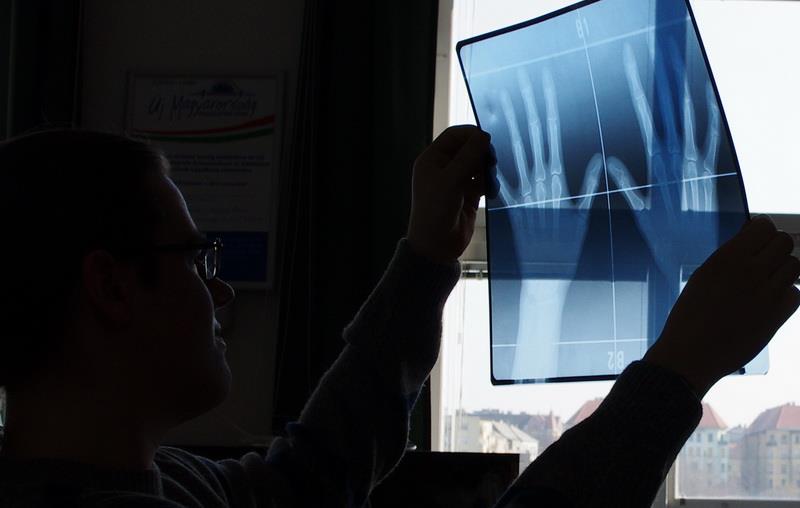2024. April 25.
In the 2024/25 academic year Budapest University of Technology and Economics will be the first and only institution in Hungary to launch an English-language master training programme in Medical Physics.
Medical Physics is the application of physics to healthcare, mainly in the fields of diagnostic imaging, radiotherapy and radiation protection.
In addition to BSc in Physics, the new MSc programme is open to students with BSc degrees in Electrical Engineering, Chemical Engineering, Computer Engineering, Mechatronics Engineering and Mechanical Engineering. After the programme, graduates will be able to apply their knowledge mainly in research teams of medical and technical professionals in industrial R&D companies with a focus on successful medical treatments.
The independent laboratory practices and thesis (and TDK) topics, which play an important role in the MSc programme, are designed to be related to real research and development tasks. This gives students the opportunity to participate in clinical and R&D activities in healthcare institutions and in projects of companies manufacturing diagnostic and therapeutic equipment. The close relationships with healthcare institutions and medical equipment manufacturers ensures that the knowledge transferred is up-to-date, and students can learn about the operation of healthcare institutions and medical equipment companies, while putting their knowledge into practice.

István Prok, vice-dean of BME’s Faculty of Natural Sciences, gave an interview to bme.hu about the new English language programme
Do you expect applications from Hungarian or foreign students in particular?
For the time being, it is mainly Hungarian students. As of today, there are 14 Hungarian applicants on felvi.hu, 9 of whom have selected our programme as their first choice. Applications for international students will start now, in early April.
Why is the programme in English?
The main motivation for offering the programme in English is that there is considerable interest in the subject from foreign students. On the other hand, we should also bear in mind that some of the physics subjects are the same as certain subjects in the MSc in Physics programme, which are traditionally taught in English.
Is the launch of the new programme due to demand from the industry or to a foreign example?
Until now, the MSc in Physics programme included a Medical Physics Specialisation. We expect that its visibility as a stand-alone degree will increase significantly. On the other hand, the range of applicants is also wider, since admission is not limited to those with a BSc in Physics. There is a significant shortage of medical physicists in the health sector. There is also a great demand for such professionals in scientific research and in the development of medical devices.
The curriculum of the Medical Physics programme can be found here. After graduation, it is of course possible to obtain a PhD degree in the Doctoral School of Physical Sciences in the field of applied physics.
Details of the programme are available at www.ttk.bme.hu but you can also enquire in person.
KJ-Rector’s Office Department of Communications


